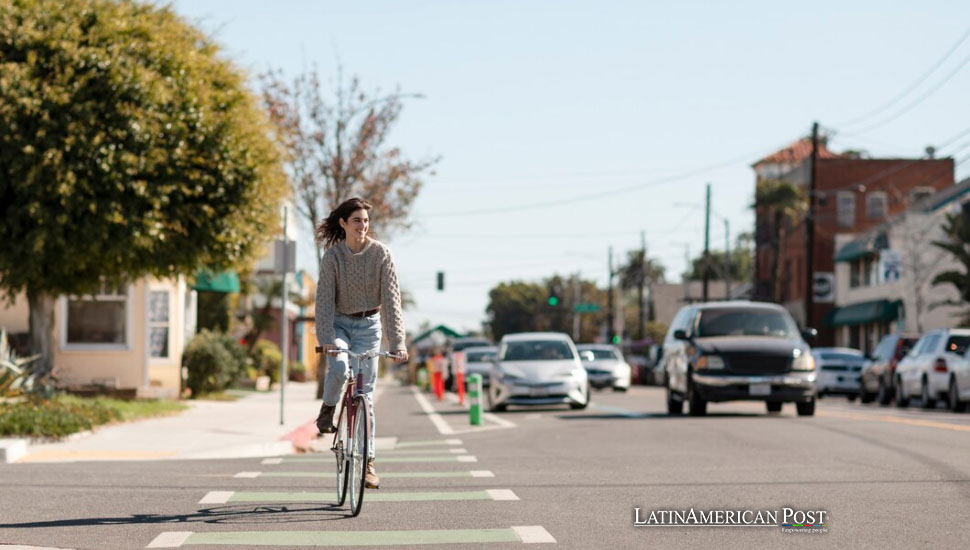El Salvador Approves $75 Million Loan for Sustainable Urban Mobility.

El Salvador’s Legislative Assembly, dominated by the ruling party, has approved a $75 million loan from the Development Bank of Latin America and the Caribbean (CAF) to fund a sustainable urban mobility program.
In a significant development for urban planning and environmental sustainability, El Salvador’s Legislative Assembly, controlled by the ruling party, has ratified a loan agreement with the Development Bank of Latin America and the Caribbean (CAF). This $75 million funding is earmarked for a comprehensive sustainable urban mobility program, signifying a crucial step towards modernizing the nation’s transport infrastructure while emphasizing low emissions and inclusivity.
The approval, secured with the majority of votes in the recent legislative session, reflects a continuity of policy focus from the previous legislature. However, the swift approval of the loan by the former parliament without prior detailed studies or analysis has raised concerns about the thoroughness of legislative oversight. Nonetheless, this loan is pivotal in advancing El Salvador’s agenda for a more sustainable and environmentally friendly urban transport system.
Historical Backdrop
Like many Latin American countries, El Salvador has grappled with rapid urbanization and its consequent challenges. Historically, the region has faced unplanned urban sprawl, inadequate public transportation systems, and significant environmental degradation. In response, recent years have seen a growing emphasis on sustainable development initiatives to address these challenges. The loan from CAF represents a part of this broader trend, where international cooperation is leveraged to implement environmentally sustainable and socially inclusive solutions.
The program funded by this loan, titled “Low Emissions Urban Mobility,” aims to transform the urban transit landscape in El Salvador by promoting sustainable, safe, affordable, and accessible mobility options. This initiative seeks to reduce the environmental impact of the country’s transport systems and enhance the quality of urban life by improving air quality and reducing traffic congestion.
The Role of International Collaboration
The program underscores the necessity of international collaboration in tackling complex issues like urban mobility and climate change. By partnering with CAF, El Salvador can tap into a network of expertise and funding that supports its transition to a more sustainable urban environment. This approach is increasingly seen across Latin America as cities become hotspots for innovation in sustainable development.
The funding arrangement includes a 15-year repayment term with a 54-month grace period, highlighting the long-term commitment required for substantial urban development projects. Additionally, the government will incur a minor fee of $40,000 post-disbursement, which will be deducted from the total loan amount. Such terms are typical in international development financing, providing recipient countries with manageable financial conditions to implement large-scale projects.
Concerns and Criticisms
While the loan and its objectives have been generally well-received, the lack of in-depth analysis before its approval by the previous legislature has sparked debate about governance and transparency in managing public debts. Moreover, El Salvador’s public debt, which stood at 82% of its GDP at the end of 2023, poses a significant concern about the fiscal sustainability of such ambitious projects.
El Salvador’s move towards sustainable urban mobility is part of a more significant trend in Latin America, where cities increasingly become focal points for sustainable development. Governments across the region are recognizing the critical need for integrated urban planning that addresses the immediate needs of their growing urban populations and the long-term sustainability of their development trajectories.
Future Outlook
As El Salvador implements this ambitious program, the success of its sustainable urban mobility initiatives will likely serve as a benchmark for similar projects across the region. It also sets a precedent for how developing nations can balance economic development with environmental sustainability through the strategic use of international financing.
Also read: El Salvador Building Airport Hotel via Blockchain Technology
The ratification of the $75 million loan from CAF for a sustainable urban mobility program marks a significant milestone in El Salvador’s development agenda. It reflects a growing recognition of the need for sustainable solutions to urbanization challenges and the role of international partnerships in achieving these goals. As El Salvador moves forward with its plans, the execution and outcomes of this program will be closely watched by policymakers and stakeholders in Latin America and beyond, offering valuable lessons in the pursuit of sustainable development in emerging economies.




